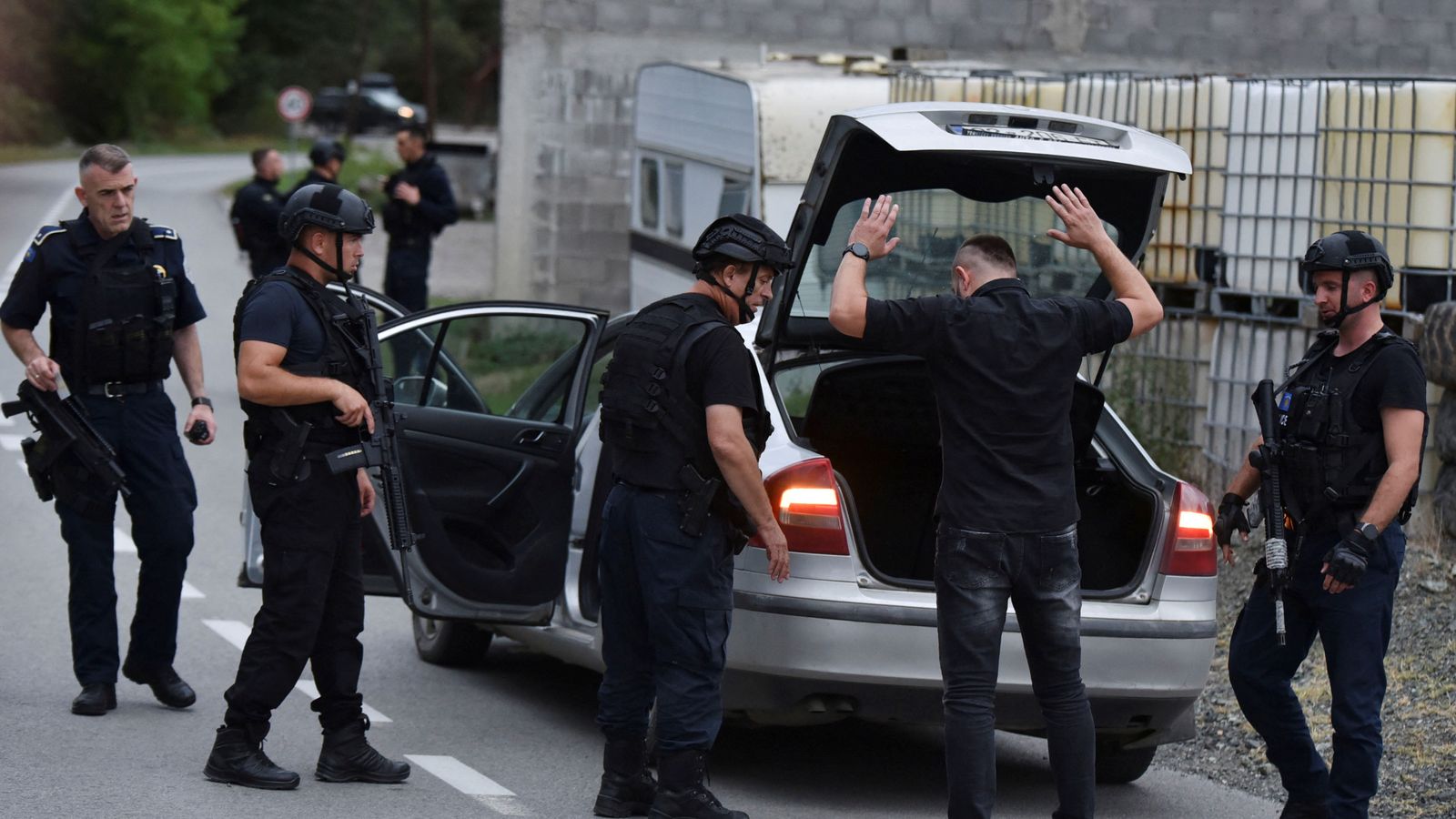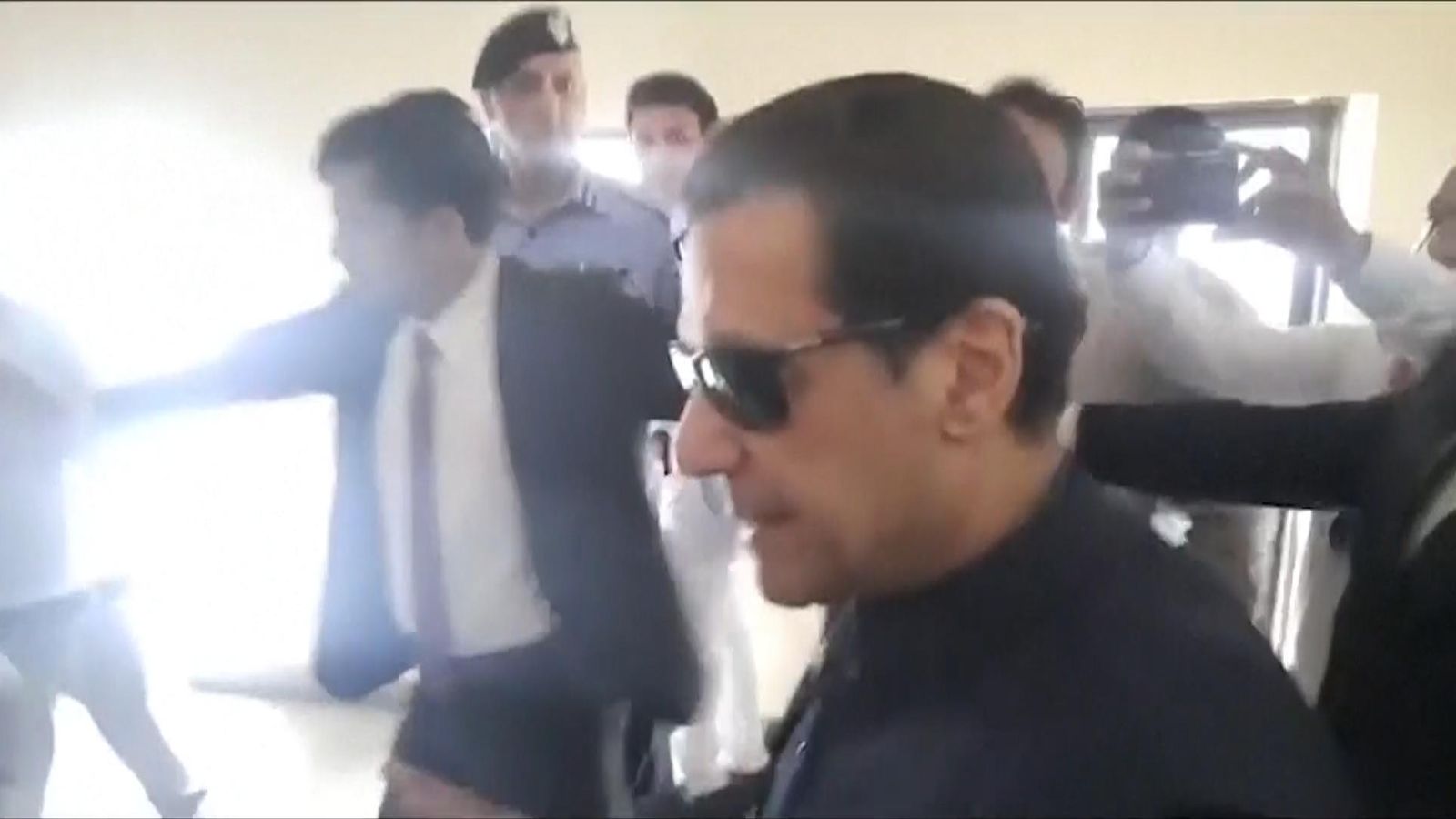One police officer was killed and another wounded in an attack Kosovo’s prime minister has blamed on support from Serbia.
Three of the assailants were also killed in the shootout which occurred following a siege on an Orthodox monastery in Banjska, Leposavic, 35 miles north of the capital Pristina.
Albin Kurti said “masked professionals armed with heavy weapons” opened fire on a police patrol in the village – killing one officer, who has since been named as Afrim Bunjaku.
Another officer was injured but his condition is not life-threatening.
Interior minister Xhelal Svecla said six gunmen, two of whom were injured, had been arrested and they had found “an “extraordinarily large amount of weaponry and ammunition, explosives”.
The attack happened when three police units were dispatched to a bridge at the entrance to the village that two trucks without licence plates had blocked, Kosovo police said.
The responding officers came under fire from weapons that included hand grenades and bombs, authorities said.
Novak Djokovic: Kosovo Olympic Committee calls for investigation into tennis player’s French Open actions
NATO to deploy extra 700 troops to Kosovo as tensions with ethnic Serbs rise
Why have tensions flared up between Serbia and Kosovo?
The officers managed to push back the attack and took two wounded members of their ranks to a hospital in the city of Mitrovica.
Police said there were still sporadic exchanges of gunfire more than 12 hours later.
Serbian media and Kosovo police said both local roads and two border crossings into Serbia were closed.
Most of Kosovo’s ethnic Serb minority lives in four municipalities around Mitrovica, in the north.
Speaking after a meeting of the country’s security council on Sunday, Mr Kurti said it was a “sad day” for Kosovo
“It is clear that these uniformed persons, at least 30, are an organised professional unit who have come to fight in Kosovo,” he said, calling on them to hand themselves over to authorities.
Reports in the media in Serb-dominated northern Kosovo said residents of the village of Banjska were woken up by shootings and detonations in the middle of the night until dawn.
Read more:
NATO to deploy extra 700 troops to Kosovo as tensions with ethnic Serbs rise
Why have tensions flared up between Serbia and Kosovo?
“Organised crime, which is politically, financially and logistically supported from Belgrade, is attacking our state,” Mr Kurti wrote on his Facebook page.
Serbia’s parliamentary speaker Vladimir Orlic said Mr Kurti “was quick to blame the Serbs,” adding that Mr Kurti was the one who wanted an “escalation” in the field.
In May tensions in northern Kosovo left 93 peacekeepers hurt in riots.
Serbia and former province Kosovo have been at odds for decades and their 1998-99 war left more than 10,000 people dead, mostly Kosovo Albanians.
Kosovo unilaterally declared independence in 2008 but Belgrade has refused to recognise the move.








